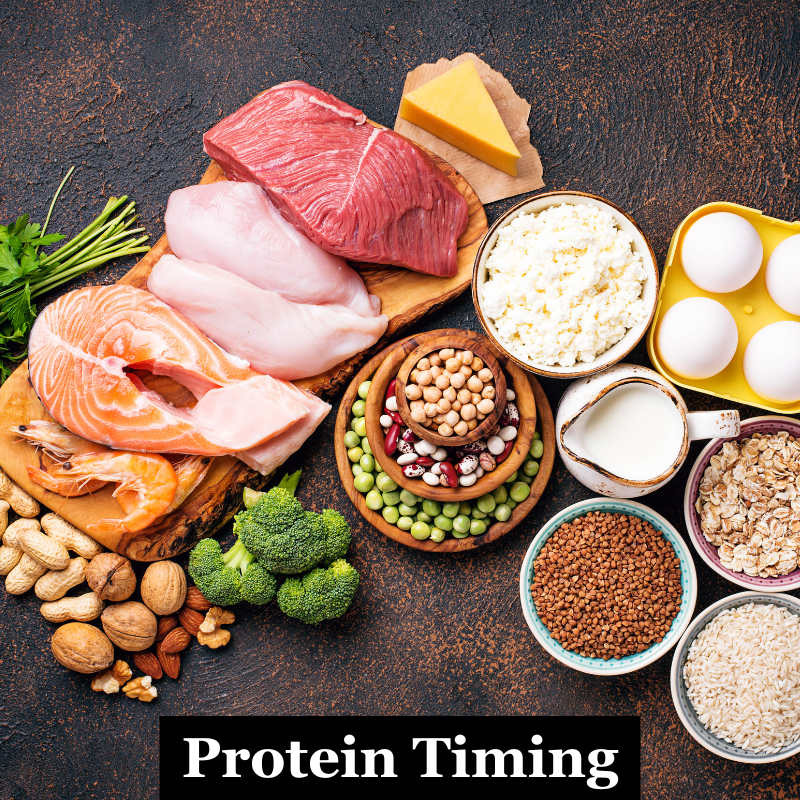Protein timing matters for health

I think most of us growing up ate cereal for breakfast. Carb-loaded punch bowl with milk. The milk being the healthiest option in hindsight. Some of us carry this eating habit into adulthood. Proves less of a problem in childhood. With that kid-friendly V8 metabolism, it felt like your body could outrace any calorie in its way. As we get older and the breakfast replacements morph into in different carb-laden processed food formulations. A bagel here, some French toast there, a muffin or a donut. By mid-morning though, you're probably noticing the hunger cravings creeping up. Willpower can only get you so far when fighting against biology. Could it be a cause of overeating?
Skimping on the protein at breakfast makes you 33% more likely to snack later in the day. And that midmorning sugar crash starts the never-ending cycle of cravings for processed carbs/sugars. The start of one habit continuing over decades skyrockets your risk of insulin resistance and weight gain. Chronic disease follows.
Could protein intake make a difference?
All it takes, 30 g of protein. That’s like 4 eggs or a couple of tablespoons of protein powder in a smoothie. It stabilizes blood sugar through several pathways. Slower transit time because proteins take longer to digest than carbs. It also does a better job of stimulating satiety hormones so you feel full longer. It also reduces the glycemic response when combined with carbs, preventing the glucose spike and the dreaded sugar crash. In fact, the research shows this amount of protein resulted in people eating 400 calories less per day compared to those who skipped their protein I the morning.
Choice architecture
Sometimes it helps to structure the environment so we make better decisions. Early-morning timing tends to set the stage for the rest of the day. We can not only take advantage of timing but leverage our biology early in the day to increase our success and habits. Willpower can only get us so far, especially when the mind tries to fight the body. Front-loading protein takes the reins, controlling unhelpful hunger cravings, overeating and sugar crashes, guiding us towards healthy metabolic adaptations, easing us downhill instead of off the proverbial sugar cliff. The first choice sets the stage for everything else.
The protein details that often get missed
Chewing beats drinking
Whey-based protein shakes enter and exit the stomach quickly. Hunger hits quickly when this happens. Solid proteins like eggs, steak, cottage cheese and Greek yogurt require chewing. Yes. Strange, but studies link chewing longer to more hunger-controlling hormones.
Protein paring
Pair your protein with fat. Eggs with avocados, for instance. Eating a ribeye rather than a leaner cut of red meat. This also works with carbs, but the unprocessed kind, like a chicken breast with veggies or Greek yogurt with berries. These will all fill you more than a scoop of some powder in water. Also, egg whites won't maintain fullness for as long as whole eggs because the yolk contains healthy fats, which take longer to digest. There’s a good way to eat protein but pairing with nutrient density is better.
Takeaway
The nutrients you consume to break that fast in the morning matter. The peak of the body’s insulin sensitivity occurs in the morning. Front-loading protein in the morning isn’t just about appetite control; it’s when your body is most efficient at turning that protein into muscle and satiety, instead of letting it drift toward fat storage later in the day when insulin sensitivity drops. It’s one of the key pathways to improving weight loss, metabolic flexibility and energy levels. Protein timing matters. And the best time to start is tomorrow morning.